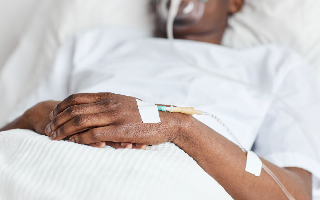
- No win. No fee.
- No hidden costs
- 100% risk-free, only pay if you win
- Home >
- Insights >
- Medical Negligence >
- How to make a complaint following GP negligence
About the Author
Tony Mitty
Medical Negligence Solicitor and Partner - LLB (Hons) University of Mid-Glamorgan
Read more about Tony »When the treatment you or a loved one receives from a GP falls below your expectations, you are entitled to make a complaint.
Under UK law, all health and social care services must have established complaint procedures. You can use these channels to highlight any instance of negligence that affected the quality of care you received, and potentially caused you further harm as a result.
In this article, we will outline what you need to know to make a formal complaint about your GP and what this can accomplish.
Making a complaint after GP negligence
Who can make a complaint?
You can make a complaint about GP negligence if:
You specifically received services from the healthcare professional involved
You are someone who is affected, or likely to be affected, by the action, omission or decision of the GP in question
You can also make a complaint on behalf of someone else who received the negligent care in the following situations:
They are under the age of 16 and they cannot make a complaint by themselves
They have passed away
They are incapable of complaining themselves either physically or mentally
They have specifically asked you to complain on their behalf
What can you make a complaint about?
There is not an exhaustive list of examples of GP negligence that you might wish to make a complaint about. Common reasons include:
Incorrect diagnosis of your condition
Your GP ignoring or underplaying important symptoms
Improper treatment, potentially resulting in injury
Unreasonable delays in diagnosis or treatment
Poor communication from your GP
Not being made aware of potential side-effects of medication
Errors in medical records or loss of these altogether
Breach of patient confidentiality
Why would you make a complaint?
It is worth highlighting immediately that making a complaint following negligence by your GP is not a route to securing compensation. In order to be compensated for any pain, injury, loss or damage you endure as a result of negligent care, you should reach out to specialist medical negligence solicitors to make a claim.
However, despite this not being a route to compensation, there are still several reasons why you might launch a formal complaint for the treatment you received:
To receive an explanation for what happened
For many of our past clients, their interest in gaining answers for their suffering is often as strong as their interest in securing compensation. That closure can be a huge weight off of the mind, and give them the motivation to move past this incident.
Writing a letter of complaint can also encourage the GP or hospital in question to provide you with an explanation of what occurred, although this is not a guaranteed outcome. For some, the answers and apologies they receive in response are all they are looking for.
To make the GP or hospital aware of your treatment
If you are concerned that the negligent care that you received has gone under the radar, writing a letter of complaint can help bring the issue to the attention of your GP.
By doing so, you can help ensure that those responsible for your poor treatment are held accountable and that others in the same organisation are aware of your situation. This can then result in further internal action against those involved, although that is not certain to happen following a complaint.
To help prevent the same mistake happening again
When sending a formal letter of complaint about GP negligence, many people’s primary motive is to prevent the same circumstances that they faced happening to someone else later on. By making this apparent in your complaint, you can encourage the GP or their wider organisation to investigate what happened and explore ways to improve their processes.
Many GPs and hospitals will use complaints as learning tools, so they can spot any problems in their current practices and rectify these moving forward. In this way, your letter of complaint may play a key role in protecting the wellbeing of future patients.
How long do you have to make a complaint?
Complaints should be made as soon as possible. In most circumstances you should submit a complaint within 12 months of the incident occurring (or from when you found out about the problem).
This time limit can be extended under certain circumstances. For example, if you were dealing with trauma following the negligent treatment and were therefore unable to make a complaint, the deadline may be extended to compensate for your situation.
Who can you complain to?
At every GP surgery, NHS or otherwise, there has to be a procedure for how they deal with complaints, and someone who is responsible for dealing with these. It is useful to ask about these or look these up to find out who you should reach out to in the first instance of making a complaint.
Outside of complaining to the GP surgery directly, there are other avenues you can take as well if you are not satisfied with the outcome of this:
For NHS-contracted GPs, you can make a formal complaint to NHS England as they are responsible for their contract and ensuring these terms are fulfilled
For both NHS and private GPs, you can make a complaint to the General Medical Council (GMC), as this is the regulatory body that ensures these professionals uphold a good standard of care
For out-of-hours GP services, you should either make a complaint to the providers directly or to the Clinical Commissioning Group (CCG) that commissions them
Before making a complaint
Prior to making a formal complaint, either verbally or written in a letter or email, it is recommended you take the following steps:
Speak to the practice manager of the GP surgery first to let them know about your situation – it is possible this initial conversation will resolve any issue prior to making a more formal complaint
During these and future conversations, keep a note of dates, times, the people present, what was discussed and their response, as these could be useful if you do intend to proceed to a formal complaint
Seek advice from organisations that can help you compose a formal letter or email of complaint, such as a complaints advocacy service, your local healthwatch, The Patients Association or Action against Medical Accidents (AvMA)
Make sure you have a valid reason to complain and that you are clear about what outcome you are hoping for, whether that is an apology, a wider investigation, or simply that this mistake is learned from and steps are taken to prevent it happening again
Have someone else check your letter or email before you send it to ensure it is succinct, clear and reasonable before it is sent to the intended recipient
Making a formal complaint
As noted, you can make a complaint either verbally or in writing. Most would recommend the written approach as:
It allows you to make your complaint dispassionately, so your emotions do not get the better of you in the case of a face-to-face complaint
You can check that all dates, names and events are accurate before these are sent on for review
You can list all factual details you can, rather than needing to recall them in the spur of the moment during a verbal exchange
Even if you choose to take a verbal approach, it is encouraged that you write all information down before speaking to the GP, practice manager or alternative person you are making the complaint to.
When complaining about GP negligence, follow the complaints procedure presented by the GP surgery before escalating the complaint to either NHS England or the GMC. You can escalate it if you do not receive a response within the given timescales or the response does not answer or address your concerns.
In your formal letter or email of complaint, ensure that you include:
What your complaint is about
Who is involved
What events took place and when
Any questions you have about those events
What outcome you are pursuing (an apology, a meeting, an investigation, etc.)
How you can be contacted
Once this has been submitted, the GP surgery should respond promptly with an acknowledgement of your complaint, followed by:
An internal investigation into the issues raised in the complaint
A comprehensive, written response to your complaint
Details of any meeting or discussion that is being arranged to attempt to resolve this issue
If you are not satisfied by what you receive following this complaint, you can escalate the matter further by contacting either the Parliamentary and Health Service Ombudsman (PHSO) in the case of NHS GPs, or the Independent Sector Complaints Adjudication Service (ISCAS) for private GPs.
For more information on how to make a formal complaint about your GP, we recommend exploring the helpful insights from Citizens Advice.
Making a claim following GP negligence
We hope you have found this article useful. Making a formal complaint following negligent care from your GP can be incredibly relieving, whether you are seeking answers for what happened to you or to receive assurances that nobody else will endure the same experience as you did.
However, if you have suffered pain or injury due to mistreatment by your GP, compensation helps you return to the position you were in before this incident took place or, if this is not possible, support your quality of life moving forward.
Our specialist medical negligence solicitors at Gadsby Wicks will thoroughly investigate your case to determine whether you have a claim, and work closely with you to reach the settlement you deserve. And we work on a “No Win, No Fee” basis, so there is no financial risk to you if your claim is unsuccessful.
If you would like to make a claim for any negligence you endured from your GP or another healthcare professional, get in touch with our team today to discuss your options.
Disclaimer
All content contained within this article is meant for general information only – this should not be treated as a substitute for medical advice from your doctor or another healthcare provider. If you require legal advice specific to your situation, please contact our team directly.
Gadsby Wicks is not liable for any diagnosis made from the content of this article, nor does it endorse any service or external site linked to within the article.
Always consult your GP if you are concerned about your health and wellbeing, or speak to us if you require legal advice.


7 steps to choosing the right medical negligence solicitor




 Back to top
Back to top
